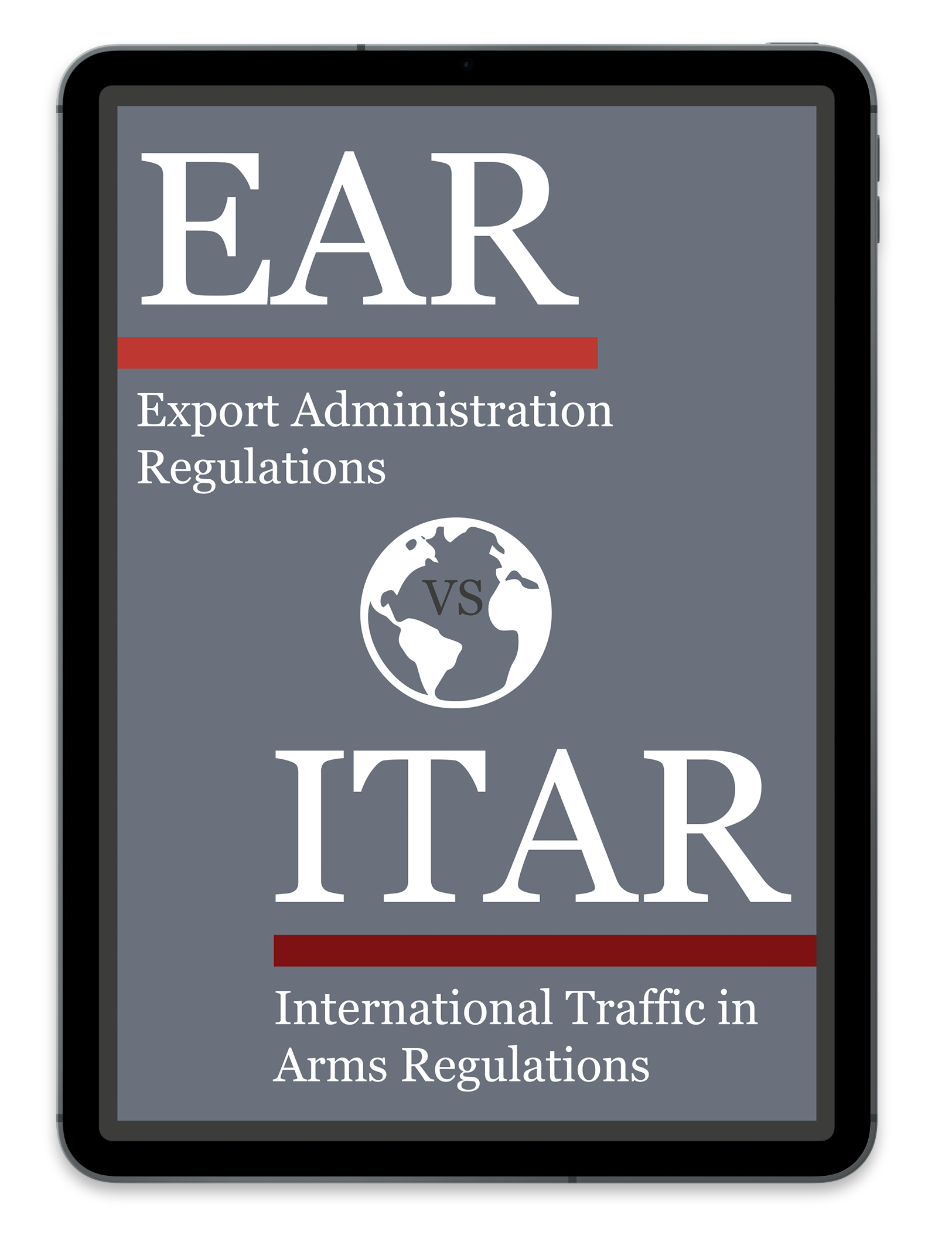
Guide to Submitting Public Comment to BIS on Export Controls for Emerging Technologies
Export controls compliance continues to be a dynamic area with a lot of regulatory change. As the U.S. government figures out the risks of new, innovative technologies to U.S. national security, there is an opportunity for your company or university to give input on future regulations through a Public Comment process.
#1 – Comment on What?
The Bureau of Industry and Security (BIS) under the U.S. Department of Commerce administers the Export Administration Regulations (EAR). The EAR spells out requirements and restrictions on literally exporting certain technologies from the U.S., as well as sharing those technologies with foreign nationals within the U.S. The Commerce Control List (CCL) in the EAR is a primarily regulatory section where controlled (i.e., regulated) technologies are described. BIS is now looking at expanding the CCL and incorporating certain “emerging technologies” (versus “foundational technologies”). Which exact technologies? BIS is seeking input from the public on which technologies and how to best describe them.
The “public comment” opportunity is one step of the U.S. government’s rulemaking process. According to BIS, the ultimate goal of this process is “updating the export control lists without impairing national security or hampering the ability of the U.S. commercial sector to keep pace with international advances in emerging fields.”
Specifically, BIS is looking for input on the following and more:
- How to define emerging technologies
- What technical criteria are important
- Sources of such emerging technologies
- Status of development in the U.S. and in other countries
- Impact of government controls on U.S. technological leadership
- Critical stages of technological development
While BIS has provided a representative list of categories of technologies, it is not all-inclusive. You can describe other advanced technologies that you feel would qualify as “emerging.” The examples from BIS are listed below. At a minimum, these are the technologies for which BIS is seeking to add meaningful export controls requirements.
Representative Examples of Emerging Technologies
- Biotechnology (e.g., neurotechnology)
- Artificial intelligence (AI) and machine learning technology (e.g., object recognition, voice cloning, and AI chipsets)
- Position, Navigation, and Timing (PNT) technology
- Microprocessor technology (e.g., Systems-on-Chip)
- Advanced computing technology (e.g., memory-centric logic)
- Data analytics technology (e.g., Automated analysis algorithms)
- Quantum information and sensing technology (e.g., Quantum encryption)
- Logistics technology (e.g., mobile electric power)
- Additive manufacturing (e.g., 3D printing)
- Robotics (e.g., Micro-drone systems, micro-robotic systems, UAV swarming technology)
- Brain-computer interfaces (e.g., brain-machine interfaces)
- Hypersonics (e.g., thermal protection systems, specialized materials for sensors)
- Advanced Materials (e.g., functional advanced fibers/fabrics), biomaterials)
- Advanced surveillance technologies (e.g., faceprint and voiceprint technologies)
For more examples of what kinds of technologies fall under these categories, see the full Federal Register Notice (83 FR 58201).
#2 – Why Submit a Public Comment?
Future changes to export controls regulations will be crafted based on the public comments and more. BIS does actually read the public comments. This is your chance to give meaningful input on the technical boundaries related to advanced technologies in your industry or sector. You can also give a thoughtful rationale for why a certain technology should not be regulated in a strict manner. The ultimate regulatory changes that come from this process are likely to affect your business growth and compliance requirements if you are working in the sectors listed above.
#3 – When to Submit a Public Comment?
As of the publication date of this blog, the due date for submitting a comment is December 19, 2018. Industry groups have requested to extend this by 30-60 days, but no change in the deadline has been announced yet.
UPDATE: The new deadline is January 10, 2019 per a new Federal Register Notice.
#3 – How to Submit a Public Comment?
The most efficient way to submit a public comment is through the Federal eRulemaking Portal. In the search field, enter “BIS 2018–0024” and you’ll see an entry for “Review of Controls for Certain Emerging Technologies”. You can click on the “Comment Now” button to submit your comment.
#4 – Where to Find Past Examples?
In the Federal eRulemaking Portal (see #3), there is a link “Open Docket Folder” below the “Comment Now” button. There you can view all the public comments that have been submitted to date.
If you are still struggling to craft your organization’s message, then it may help to look at past submissions from prior public comment opportunities for other regulatory changes under BIS. Check out the archive of public comments on the BIS website.
#5 – What Happens Next?
What will NOT happen as a result of the public comments? BIS has clearly stated in their request that it “does not seek to alter existing controls on technology already specifically described in the CCL.” In other words, if you have a technology that falls under a certain ECCN (Export Control Classification Number), then the ECCN will not change as result of this particular process. (Note, that kind of change can happen through other rulemaking processes.) This particular dive into emerging technologies also does not aim to affect existing carve-outs such as the “fundamental research” exclusion.
What is the next step? After public comments are received and reviewed, a proposed rule will be published through a new BIS Federal Register Notice. Ultimately, new ECCNs will likely be created in the CCL (15 CFR Part 744). That means a BIS license might be needed in the future for your organization to export emerging technologies out of the U.S. or conduct a deemed export in the U.S.






The U.S. government has shifted to using the phase “Section 1758 Technologies” as opposed to “emerging” or “foundational” technologies.
https://www.federalregister.gov/documents/2023/04/20/2023-08269/section-1758-technology-export-controls-on-instruments-for-the-automated-chemical-synthesis-of#:~:text=Section%201758%20of%20ECRA%20authorizes,security%20of%20the%20United%20States.